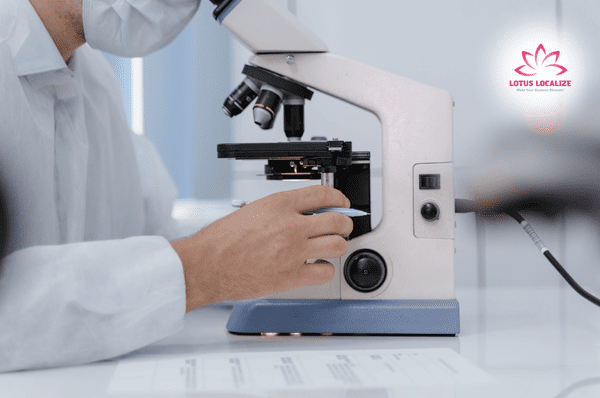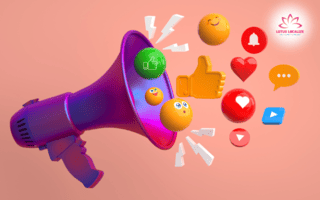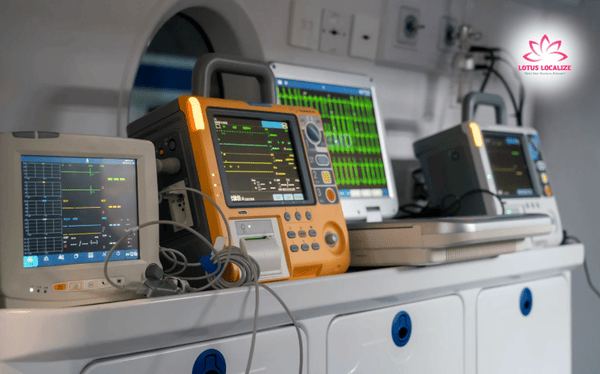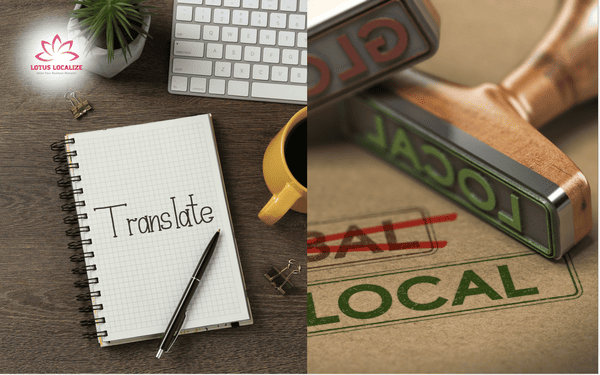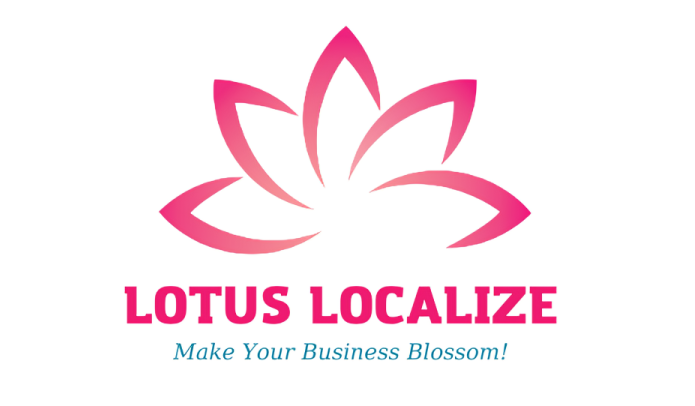
Clinical trial translation: Key to success in global healthcare research
In the rapidly evolving landscape of global healthcare research, clinical trials hold the key to groundbreaking medical advancements. However, their success hinges on more than just innovation — it relies on effective communication across linguistic and cultural boundaries. Clinical trial translation plays a pivotal role in bridging these gaps, ensuring accuracy, inclusivity, and ethical integrity in a diverse, interconnected world. This article explores how precise and culturally sensitive clinical trial translation is not merely a logistical necessity, but a cornerstone of successful global healthcare research, driving progress and accessibility for all.
Understanding clinical trial translation
Clinical trial translation is the driving force behind successful global healthcare research. It’s not just about translating words—it’s about breaking down barriers, building trust, and ensuring that every participant, no matter where they are, has a clear understanding of the trial’s purpose, risks, and benefits.

From informed consent forms to patient-reported outcomes, precise and culturally tailored translation safeguards participant rights and fosters inclusivity. With its unique blend of medical expertise, cultural awareness, and regulatory precision, clinical trial translation transforms complex research into actionable, accessible solutions.
Read more: Pharma translation: Why it’s crucial in the global pharmaceutical industry
The role of clinical trial translation in medical research
Connecting diverse populations to groundbreaking medical research
Clinical trial translation is instrumental in bridging the gap between diverse populations and innovative healthcare solutions. By providing accurate translations of study materials, we ensure that participants from various linguistic and cultural backgrounds can fully engage with and contribute to clinical trials. This inclusivity not only enriches the research process but also enhances the relevance and applicability of findings, ultimately paving the way for treatments that benefit everyone, regardless of their background.
Building trust through accurate patient communication
Trust is the cornerstone of successful clinical trials, and effective communication is key to fostering that trust. Clinical trial translation ensures that patients clearly understand the purpose, procedures, risks, and benefits of their participation. By delivering information in a culturally sensitive and accessible manner, we empower participants to make informed decisions about their involvement in research. This commitment to transparency helps build strong relationships between researchers and participants, creating a collaborative environment that encourages participation and engagement.

Meeting global regulatory requirements
Navigating the complex landscape of global regulatory requirements can be challenging. Clinical trial translation plays a critical role in ensuring compliance with various guidelines that govern research practices across different countries. By working with qualified translation professionals who understand the specific regulatory standards in target markets, you can avoid costly delays and ensure that your study adheres to all necessary protocols. This attention to detail not only enhances the credibility of your research but also safeguards the integrity of the clinical trial process.
Clinical trial translation is not just a necessary step; it is a vital element of successful medical research. By connecting diverse populations, building trust through clear communication, and ensuring regulatory compliance, we can advance the frontiers of healthcare and improve outcomes for all. Embrace the power of translation to unlock the full potential of your clinical trials and drive meaningful progress in medical research!
Key documents in clinical trial translation
In the world of clinical trials, effective communication is paramount. Clinical trial translation ensures that all participants, researchers, and stakeholders understand the study’s goals, procedures, and requirements. Here are the key documents that require precise translation to facilitate successful clinical trials:
Informed consent forms (ICFs)
Informed consent forms are crucial for ethical research. They provide participants with essential information about the study, including its purpose, procedures, risks, and benefits. Accurate translation of ICFs is vital to ensure that participants from diverse backgrounds can fully understand what they are consenting to. This not only protects participants’ rights but also builds trust in the research process.
Protocols
The clinical trial protocol outlines the study design, objectives, methodology, and statistical considerations. Translating the protocol ensures that all team members, including those in different countries, are aligned and understand the study’s framework. Consistent understanding of the protocol is essential for maintaining the integrity and consistency of the trial.

Case report forms (CRFs)
CRFs are used to collect data from each participant during the trial. These forms must be accurately translated to avoid errors in data entry and analysis. Clear and consistent terminology across translated CRFs ensures reliable data collection, which is critical for producing valid research results.
Patient information sheets (PIS)
Patient Information Sheets provide detailed information about the trial to participants. These documents must be translated with cultural sensitivity to ensure that participants are fully informed about what to expect. A well-translated PIS enhances participant comprehension and encourages informed participation.
Safety reports and adverse event reports
Safety is a top priority in clinical trials. Translation of safety reports and adverse event reports must be meticulous to ensure accurate communication of risks and side effects. This information is essential for maintaining participant safety and compliance with regulatory requirements.
The successful execution of clinical trials relies heavily on the accurate translation of key documents. By prioritizing high-quality translation, researchers can foster understanding, build trust, and ensure compliance, ultimately leading to more effective and inclusive medical research. Embrace the power of translation to enhance your clinical trial’s success and connect with diverse populations around the world!
Read more: Understanding the importance of blockchain translation in modern technology
What are the challenges in clinical trial translation?
Clinical trial translation is essential for the success of global research, but it comes with its own set of challenges. Navigating these obstacles requires careful attention to detail and cultural nuances. Here are some key challenges in clinical trial translation:
Cultural nuances and context
Each culture has its own values, beliefs, and communication styles, which can significantly impact how information is perceived. Translators must go beyond literal translations and consider cultural context to ensure that the message resonates with participants. Misunderstandings can arise if cultural nuances are overlooked, potentially affecting participant comprehension and engagement.
Technical terminology
Clinical trials often involve complex medical terminology and scientific language that can be challenging to translate accurately. Ensuring that specialized terms are used correctly in the target language is crucial for maintaining the integrity of the study. Misinterpretations of technical terms can lead to data inaccuracies and compromise the study’s results.

Regulatory compliance
Different countries have specific regulatory requirements for clinical trial documents, including translation standards. Navigating these regulations can be daunting, as failure to comply can result in delays or rejections. Translators must be well-versed in the regulatory landscape of the target countries to ensure that all documents meet the necessary guidelines.
Adapting to changes
Clinical trials can evolve, with changes in protocols, procedures, or regulatory requirements occurring at any time. Keeping all translated documents up-to-date can be a logistical challenge. Quick and effective communication among the translation team and researchers is essential to ensure that changes are reflected accurately.
While clinical trial translation is vital for successful global research, it presents unique challenges that require careful navigation. By recognizing and addressing these challenges, researchers can enhance the quality of their translations, foster participant understanding, and ensure compliance with regulatory standards. Embracing a thoughtful approach to translation not only improves the research process but also helps build trust and inclusivity in clinical trials worldwide.
Best practices for clinical trial translation
Effective translation is crucial for the success of clinical trials, enabling clear communication between researchers and participants from diverse backgrounds. To achieve high-quality translations, consider these best practices:
Engage professional translators with medical expertise
Choose professional translators who specialize in medical and clinical trial translation. They should possess not only linguistic skills but also a strong understanding of medical terminology and the clinical research process. This expertise is essential for ensuring accurate and contextually appropriate translations.
Utilize a glossary of standardized terms
Develop a glossary of standardized terms specific to your clinical trial. This glossary should include key medical terminology, acronyms, and phrases commonly used in the study. Consistency in terminology across all translated documents is crucial for maintaining clarity and reducing misunderstandings.

Incorporate cultural adaptation
Translation is not just about words; it’s about meaning. Ensure that translations are culturally sensitive and adapted to the target audience. This may involve modifying examples, analogies, or references to align with the cultural context of participants. Engaging local experts can help with this process.
Establish a review and approval process
Create a structured review and approval process for all translated documents. Involve subject matter experts, regulatory professionals, and relevant stakeholders to ensure that the translation meets both scientific and regulatory standards. This collaborative approach enhances the quality and reliability of translations.
Ensure compliance with regulatory standards
Stay informed about the regulatory requirements for clinical trial documentation in each target country. Different regions may have specific guidelines for translations, including language requirements and formatting. Ensuring compliance will help avoid delays and complications in the trial process.
Train your team on cultural competence
Foster cultural competence within your research team. Providing training on cultural awareness and sensitivity can help researchers understand the backgrounds of the participants they are working with. This understanding can improve communication and enhance trust during the trial.
By implementing these best practices for clinical trial translation, researchers can enhance the quality and effectiveness of their communication with participants. Prioritizing accuracy, cultural sensitivity, and regulatory compliance not only fosters trust but also contributes to the overall success of clinical research. Embrace these practices to ensure that your clinical trials are accessible, inclusive, and impactful!
Future perspectives in clinical trial translation
As the landscape of clinical research continues to evolve, so too does the field of clinical trial translation. With advancements in technology, a growing emphasis on inclusivity, and a focus on patient-centered approaches, the future of clinical trial translation is bright and full of possibilities. Here are some key perspectives on what lies ahead:
Integration of advanced technology
The use of technology in translation is set to expand significantly. Tools like artificial intelligence (AI) and machine learning can assist in translating documents more efficiently and accurately. While machine translation alone may not capture the nuances of medical language, it can support professional translators by providing initial drafts that can be refined. Furthermore, natural language processing (NLP) can help in analyzing and improving translation quality over time.

Emphasis on cultural competence
As clinical trials become increasingly global, understanding cultural nuances will be more important than ever. Future translations will likely prioritize cultural competence, ensuring that materials are not only linguistically accurate but also culturally relevant. Research teams will need to incorporate local insights and preferences to enhance participant understanding and engagement.
Patient-centric approaches
The trend toward patient-centric research is shaping how clinical trial information is communicated. Future clinical trial translations will focus on making documents more accessible and understandable for participants. This may involve simplifying language, using visuals, and incorporating feedback from patients during the translation process to ensure that materials meet their needs and expectations.
Integration of patient feedback mechanisms
Incorporating participant feedback into the translation process will become a standard practice. Researchers will increasingly seek input from participants about the clarity and usability of translated materials. This feedback loop will help improve future translations and foster a sense of ownership among participants in the research process.
Collaboration with multilingual teams
As clinical trials become more global, the importance of multilingual research teams will grow. Collaborating with team members who are fluent in the target languages can enhance the translation process by providing nuanced insights and ensuring that all perspectives are considered. This collaboration can lead to more effective and culturally sensitive translations.
Sustainability in translation practices
Future perspectives also include a focus on sustainability in clinical trial translation. This may involve developing practices that minimize environmental impact, such as reducing the need for printed materials by utilizing digital platforms for translations. Embracing sustainable practices aligns with broader global health goals and enhances the overall efficiency of clinical trials.
The future of clinical trial translation is poised for significant advancements driven by technology, cultural understanding, and a commitment to patient-centric approaches. By embracing these emerging trends and perspectives, researchers can enhance the quality of their translations, foster inclusivity, and ultimately contribute to the success of clinical trials worldwide. As we look ahead, the potential for innovation in clinical trial translation is immense, paving the way for more effective and impactful medical research.
Read more: How healthcare translation enhances global health services and patient trust
Lotus Localize: your trusted partner for clinical trial translation
At Lotus Localize, we understand that effective communication is vital for the success of clinical trials. Our specialized clinical trial translation services ensure that your research reaches diverse populations accurately and ethically. Here’s how we can support your clinical trial needs:
Expertise in medical translation
Our team consists of professional translators with extensive experience in medical and clinical research. They are not only fluent in multiple languages but also have a deep understanding of medical terminology and the clinical trial process. This expertise ensures that your documents are translated with precision and context.

Culturally sensitive adaptation
We recognize that translation goes beyond just words; it’s about conveying meaning. Our translators are trained to consider cultural nuances, ensuring that all materials resonate with participants from various backgrounds. This cultural sensitivity helps build trust and enhances participant engagement throughout the trial.
Comprehensive document coverage
Lotus Localize offers translation services for all key clinical trial documents, including:
- Informed consent forms (ICFs)
- Protocols
- Case report forms (CRFs)
- Patient information sheets (PIS)
- Recruitment materials
- Data collection instruments
- Regulatory submission documents
- Safety reports and adverse event reports
- Training materials
No matter the document type, we ensure that each translation maintains the highest standards of accuracy and clarity.
Rigorous quality assurance
Quality is at the heart of what we do. Our translation process includes multiple layers of quality assurance, such as proofreading and back-translation, to ensure that your documents are not only accurate but also clear and comprehensible. We adhere to stringent quality control protocols to deliver translations you can trust.
With Lotus Localize as your partner in clinical trial translation, you can be confident that your research will be communicated clearly and effectively across language barriers. Our commitment to quality, cultural sensitivity, and regulatory compliance ensures that your clinical trials are successful and inclusive. Let us help you connect with diverse populations and drive meaningful progress in medical research!
In conclusion, clinical trial translation is not merely a logistical necessity; it is a vital component that underpins the success of global healthcare research. By ensuring that study materials are accurately and culturally adapted, researchers can engage diverse populations and foster meaningful participation. This inclusivity not only enhances the ethical integrity of trials but also leads to more robust and generalizable findings that benefit patients worldwide.
Lotus Localize offers professional translation services for various specialized industries: life science translation, technology translation, manufacturing translation, e learning translation, legal translation, game localization,… ensuring your message resonates—whether in writing or speech. Let us help you bridge linguistic gaps and connect with audiences worldwide.
Contact us today at our hotline or Whatsapp: + 84 866 224 968 or visit the websites: dichthuathoasen.com/en/. Let Lotus Localize accompany you in bringing products, people, and culture to the global stage, and together, we’ll create miracles!
QUALITY PROMISE
At Lotus Localize, we are dedicated to delivering high-quality services and ensuring the utmost satisfaction in every client project. Our team of translators and staff consistently exert effort and adhere rigorously to quality management procedures. This commitment guarantees that each project progresses seamlessly, meets deadlines, and exceeds our clients' expectations.



